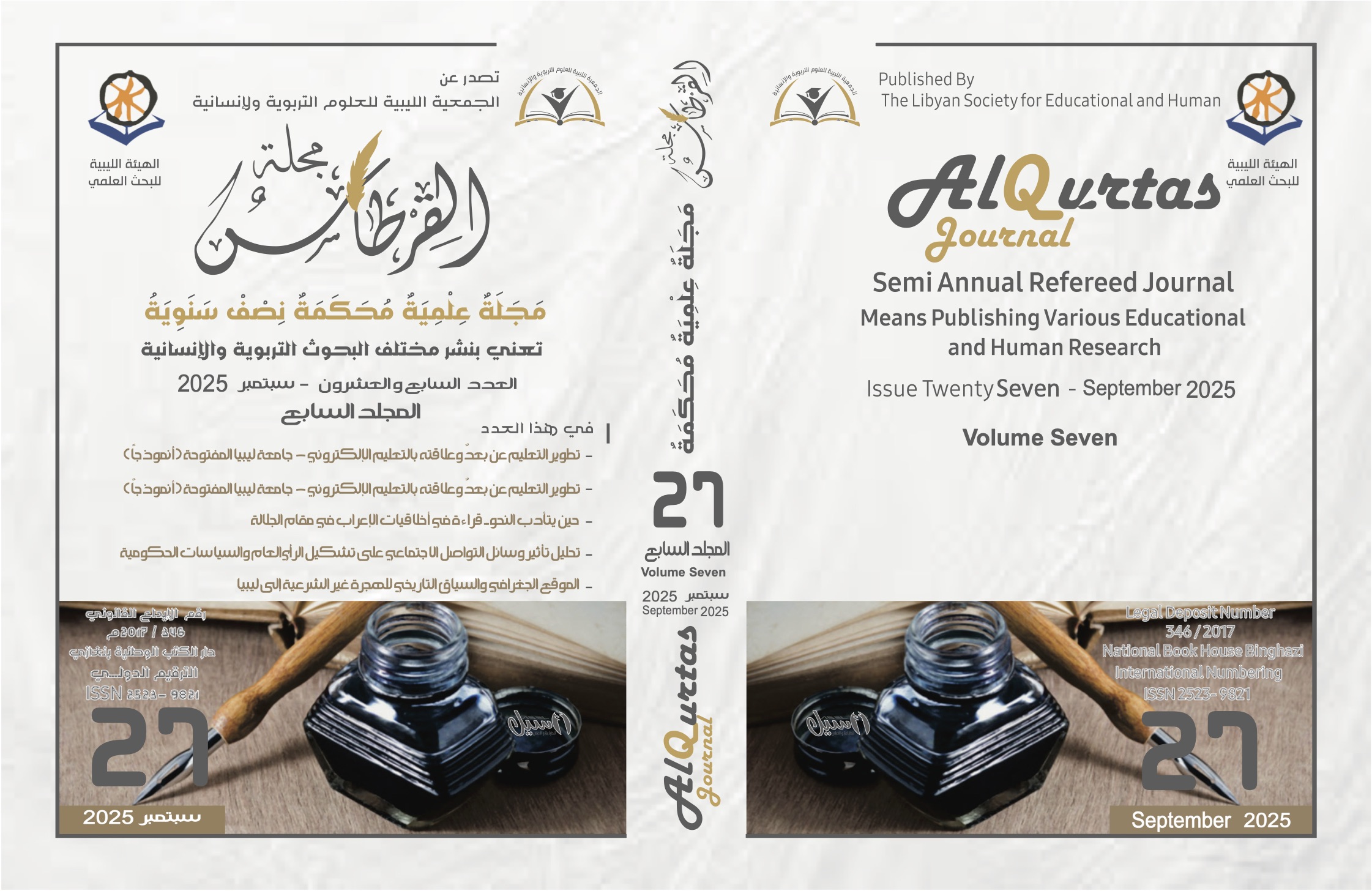When Grammar Behaves: A Study of the Ethics of Parsing in the Maqam Al-Jalalah
Main Article Content
Abstract
Praise be to Allah, who taught man what he did not know, and peace and blessings be upon His Holy Prophet and his entire family. Our Islamic religion urges us to good manners and politeness in all our lives, including politeness in speech and the use of good words and avoiding bad ones, or those that may be misunderstood and taken to mean something other than what they mean, and it is more important to be polite with Allah (SWT) and the Holy Qur'an. Politeness with the Creator is a precious value of the religion, which the scholars adhered to and observed in their councils and writings. One of the manifestations of this high politeness is their politeness in the parsing of sentences and compositions that have a connection and relationship with the Divine Self and His Holy Book, which does not bring falsehood from between its hands or from behind it, so that some grammarians ascended to asceticism and replaced them with other terms in order to respect the politeness with God. This research aims to trace what is scattered in books of language and grammar of this fine literature that was noticed by the predecessors but overlooked by the successors, and to highlight it and address the opinions of scholars on it, while trying to choose the words that are suitable for the expression of words that have a connection with God and the Holy Qur'an. The research includes an introduction and two research topics: In the first section, I dealt with the opinions of previous scholars and their approach to this issue in their books, and in the second section: I collected the issues related to the etiquette of dealing with the Holy Name (Allah) and the words of the Qur'an when parsing and arranged them according to their occurrence in the conclusion of the chapters of Sha'ban al-Athari, which is at the end of his millennium, then I added to it what was overlooked, then a conclusion that included the most important findings and recommendations that I reached, relying on the inductive and analytical descriptive method that is appropriate to the subject matter of the research.
Downloads
Article Details

This work is licensed under a Creative Commons Attribution-NonCommercial 4.0 International License.

